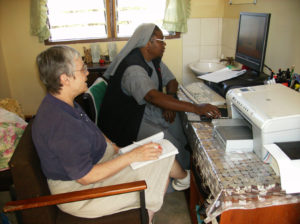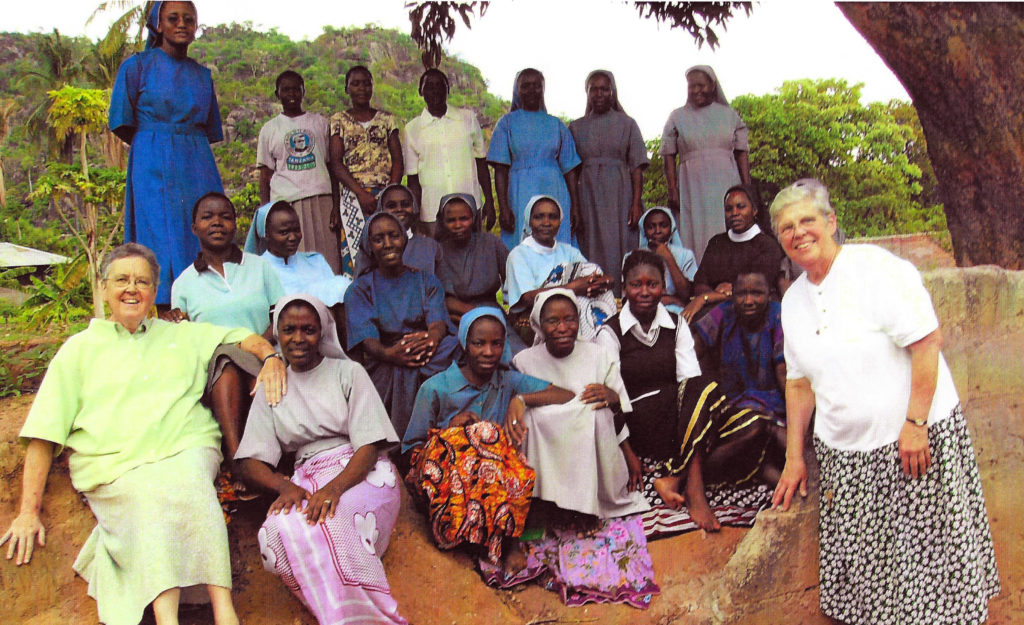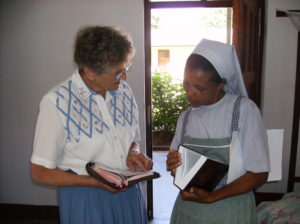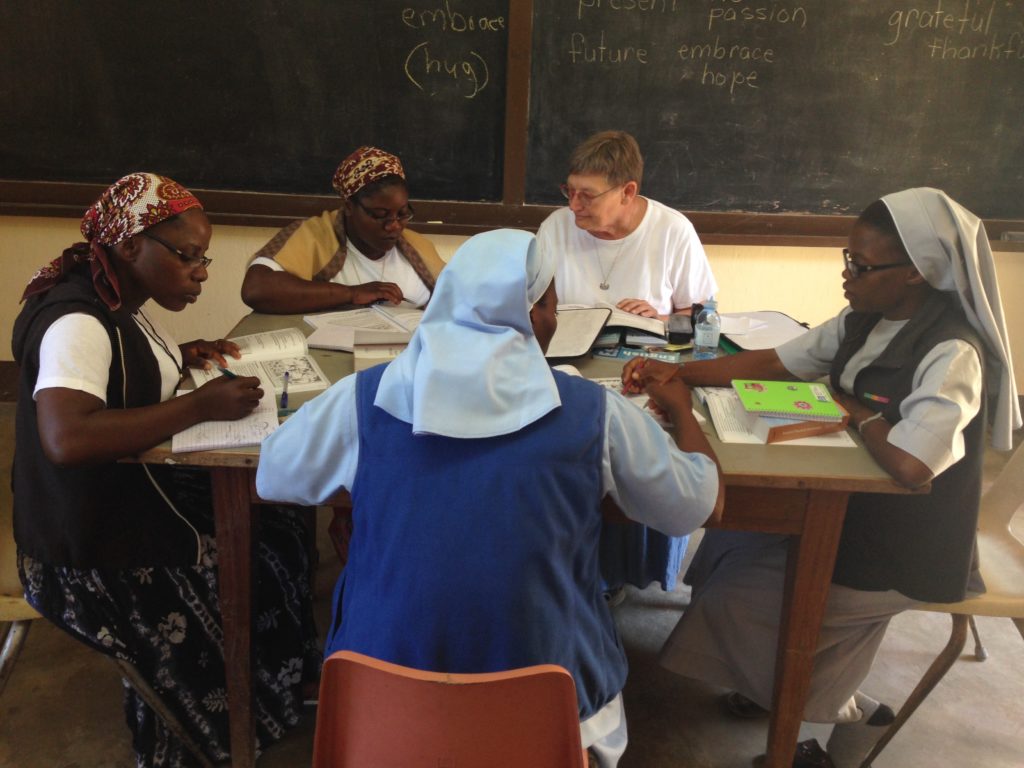Education initiative opens doors in Africa
My father was a fisherman and my mother was caring for our family. My father died in 1993 due to malaria. I completed primary school in 1994 so it was difficult for me to go to secondary school due to the death of my father. I decided to help my mom at home.
The realities of life shared by Sister Dorothea James, SDS above, describes the faltering path of education for many young women in Africa. Sr. Dorothea entered the convent in 2001 and made final vows in 2012. Four years later, she was a “form three” student at a secondary school in Tanzania – equivalent to a high school junior in the U.S.
Despite the obstacles, professional education is a high priority for our sisters in Africa. At the request of SDS international leadership in Rome, our North American Province supports that priority. The professional education initiative is vital for Salvatorian Sisters to improve quality of life for their local people. On-the-job training is no longer enough. Today, advanced medical training is essential for the sisters to teach villagers pre- and post-natal care, how to treat malaria, and how to prevent disease. Professional education also prepares the sisters to equip their local people with important life skills to become more self-sufficient.

In Tanzania, most secondary and all university classes are taught in English. Many of our Tanzanian sisters enter the convent with poor English skills due to lack of books and other essentials in their primary classrooms. Their low confidence in using English becomes a major barrier for the sisters to advance their studies in social work, health care and teaching. Starting in 2009, we launched our English as a Second Language (ESL) Immersion Program to break down that barrier.

Through 2019, a U.S. Salvatorian Sister and/or Lay Salvatorian traveled to Tanzania each summer to lead a 72-hour immersion in ESL. Many were retired educators, including Sisters Jane Eschweiler and Virginia Honish who went the first year. In years to follow, Sisters Jenada Fanetti and Barbara Reynolds, and Lay Salvatorians Sue Haertel and Margaret Scola also led the classes.

Each year our province provided funding to cover expenses for travel, ESL teaching aids and learning materials. From Day 1 of the immersion program, the African sisters were encouraged to use their newly acquired English skills beyond the classroom, including during meals and at prayer. After the three-week session ends, they keep their ESL learning materials to continue building their confidence. (To compare, a three-credit university course in the U.S. typically meets 45 hours over 12 weeks.) Learning to read, write and speak English lays a foundation for our African sisters to succeed in advanced studies in education, vocational training, business administration, nursing and other medical fields.
Sister Beverly Heitke emphasizes the ESL program’s broader impact saying, “The ESL program lays a firm foundation to raise the level of education for our sisters in Africa.”

In 2013, French-speaking sisters from the Democratic Republic of Congo began traveling to Tanzania to learn English too. In this way, the ESL program strengthened collaboration between our Tanzanian and Congolese regions. Since participating in the summer classes, our Congolese sisters have opened a mission in English-speaking Zambia. The new mission is a testament to the promise professional education offers Salvatorian Sisters in Africa to strengthen their ministries.
Sister Astrid Kateni, SDS, from the DR Congo, expressed her feelings about the program in her final ESL writing assignment:
I entered the Salvatorian Congregation in 1995 . . . and took my final vows in 2004. In the same year, I started at Lubumbashi University and earned my diploma as a financial administrator . . . English has become an important language throughout the world and most importantly throughout our congregation. Before coming here, I had many difficulties to understand English. . I feel much gratitude to the United States region for their collaboration with us. May God bless them.
Our latest trip to Tanzania to teach English was in summer 2019. It will likely be our last, as our Tanzanian sisters now have the proficiency to lead the ESL program on their own. It’s not a goodbye, but rather, a hope-filled send-off. We’re confident the program we started back in 2009 will carry on, to advance our African sisters professional studies and in turn, improve the lives of their beloved local people.
Our 125 Year Celebration
As we look back on our 125th anniversary of coming to the USA, we invite you to reminisce with us. We've launched all 5 time lines with historical milestones and stories that bring to life the experiences of our sisters who came before us.
Era 1: 1895-1920
Responding to Immigrant Needs
The missionary response of hearty immigrant women religious characterizes the first 25 years of Salvatorian Sisters’ presence in the United States ...
Era 2: 1920-1950
Expanding in an “American” Church
By 1920, life for a Salvatorian Sister in the USA was radically different than it had been 25 years earlier. World War I ....
Era 3: 1950-1970
Embracing Renewal
Bob Dylan’s 1964 classic, The Times They Are A Changing, captures the high energy of this era. Change was afoot both outside and inside the Salvatorian convent walls...
Era 4: 1970-2000
Building Collaboration
Events of the mid-1960s renewed the collaborative energy that had always characterized Salvatorian life. Cloistered living ...
Era 5: 2000-2020
Searching for New Footing in a Changing World
When the new millennium arrived on January 1, 2000, Salvatorian Sisters were already five years into our second century on USA soil. Our ...
